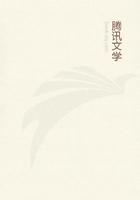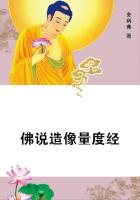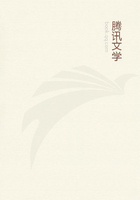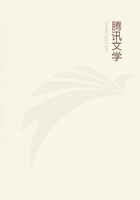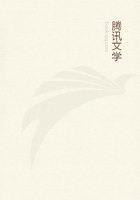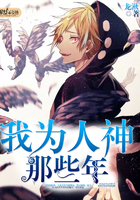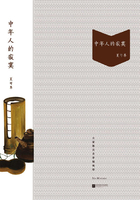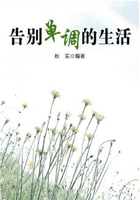Taking Chinsamba's advice to avoid the Mazitu in their marauding, we started on the 5th September away to the N.E., and passed mile after mile of native cornfields, with an occasional cotton-patch.
After a long march, we passed over a waterless plain about N.N.W. of the hills of Tsenga to a village on the Lake, and thence up its shores to Chitanda.The banks of the Lake were now crowded with fugitives, who had collected there for the poor protection which the reeds afforded.For miles along the water's edge was one continuous village of temporary huts.The people had brought a little corn with them; but they said, "What shall we eat when that is done?When we plant corn, the wild beasts (Zinyama, as they call the Mazitu) come and take it.When we plant cassava, they do the same.How are we to live?"A poor blind woman, thinking we were Mazitu, rushed off in front of us with outspread arms, lifting the feet high, in the manner peculiar to those who have lost their sight, and jumped into the reeds of a stream for safety.
In our way along the shores we crossed several running rivulets of clear cold water, which, from having reeds at their confluences, had not been noticed in our previous exploration in the boat.One of these was called Mokola, and another had a strong odour of sulphuretted hydrogen.We reached Molamba on the 8th September, and found our old acquaintance, Nkomo, there still.One of the advantages of travelling along the shores of the Lake was, that we could bathe anywhere in its clear fresh water.To us, who had been obliged so often to restrain our inclination in the Zambesi and Shire for fear of crocodiles, this was pleasant beyond measure.The water now was of the same temperature as it was on our former visit, or 72 degrees Fahr.The immense depth of the Lake prevents the rays of the sun from raising the temperature as high as that of the Shire and Zambesi; and the crocodiles, having always clear water in the Lake, and abundance of fish, rarely attack man; many of these reptiles could be seen basking on the rocks.
A day's march beyond Molamba brought us to the lakelet Chia, which lies parallel with the Lake.It is three or four miles long, by from one to one and a half broad, and communicates with the Lake by an arm of good depth, but with some rocks in it.As we passed up between the Lake and the eastern shore of this lakelet, we did not see any streams flowing into it.It is quite remarkable for the abundance of fish; and we saw upwards of fifty large canoes engaged in the fishery, which is carried on by means of hand-nets with side-frame poles about seven feet long.These nets are nearly identical with those now in use in Normandy--the difference being that the African net has a piece of stick lashed across the handle-ends of the side poles to keep them steady, which is a great improvement.The fish must be very abundant to be scooped out of the water in such quantities as we saw, and by so many canoes.There is quite a trade here in dried fish.
The country around is elevated, undulating, and very extensively planted with cassava.The hoe in use has a handle of four feet in length, and the iron part is exactly of the same form as that in the country of the Bechuanas.The baskets here, which are so closely woven together as to hold beer, are the same with those employed to hold milk in Kaffirland--a thousand miles distant.
Marching on foot is peculiarly conducive to meditation--one is glad of any subject to occupy the mind, and relieve the monotony of the weary treadmill-like trudge-trudging.This Chia net brought to our mind that the smith's bellows made here of a goatskin bag, with sticks along the open ends, are the same as those in use in the Bechuana country far to the south-west.These, with the long-handled hoe, may only show that each successive horde from north to south took inventions with it from the same original source.Where that source may have been is probably indicated by another pair of bellows, which we observed below the Victoria Falls, being found in Central India and among the Gipsies of Europe.
Men in remote times may have had more highly-developed instincts, which enabled them to avoid or use poisons; but the late Archbishop Whately has proved, that wholly untaught savages never could invent anything, or even subsist at all.Abundant corroboration of his arguments is met with in this country, where the natives require but little in the way of clothing, and have remarkably hardy stomachs.
Although possessing a knowledge of all the edible roots and fruits in the country, having hoes to dig with, and spears, bows, and arrows to kill the game,--we have seen that, notwithstanding all these appliances and means to boot, they have perished of absolute starvation.
The art of making fire is the same in India as in Africa.The smelting furnaces, for reducing iron and copper from the ores, are also similar.Yellow haematite, which bears not the smallest resemblance either in colour or weight to the metal, is employed near Kolobeng for the production of iron.Malachite, the precious green stone used in civilized life for vases, would never be suspected by the uninstructed to be a rich ore of copper, and yet it is extensively smelted for rings and other ornaments in the heart of Africa.A copper bar of native manufacture four feet long was offered to us for sale at Chinsamba's.These arts are monuments attesting the fact, that some instruction from above must at some time or other have been supplied to mankind; and, as Archbishop Whately says, "the most probable conclusion is, that man when first created, or very shortly afterwards, was advanced, by the Creator Himself, to a state above that of a mere savage."

